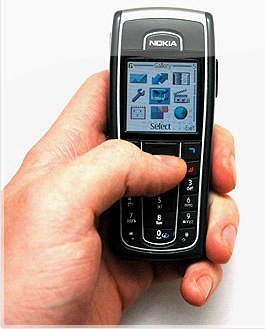Taxing Text Messages And SMS Monitoring
 You might have notice that this blog has been consistently monitoring the regulations about the use of cellular phones in the Philippines. The reason for this is that I believe, like any ordinary cellphone user, that we should all be informed of the regulations in its use. My previous posts about cellular phones were mostly good or beneficial to the subscribers like longer expiry period for prepaid loads and banning of unsolicited text messages. This time, it’s not good news but rather about taxing text messages and the possible harmful consequences of monitoring the Short Message Service (SMS) of cellular phone companies. By the way, any development in the cellphone industry can also affect the revenues of Internet cafés doing online loading business.
You might have notice that this blog has been consistently monitoring the regulations about the use of cellular phones in the Philippines. The reason for this is that I believe, like any ordinary cellphone user, that we should all be informed of the regulations in its use. My previous posts about cellular phones were mostly good or beneficial to the subscribers like longer expiry period for prepaid loads and banning of unsolicited text messages. This time, it’s not good news but rather about taxing text messages and the possible harmful consequences of monitoring the Short Message Service (SMS) of cellular phone companies. By the way, any development in the cellphone industry can also affect the revenues of Internet cafés doing online loading business.
Last Tuesday, September 8, 2009, the House Committee on Ways and Means approved a resolution imposing a 5-centavo tax for every text message. A consolidation of house bills proposed by Ilocos Rep. Eric Singson and Quezon Rep. Danilo Suarez, the unnumbered measure is set to be presented to the plenary for deliberation. In separate position papers, Smart Communications and Globe Telecom decried a consolidated House bill that seeks to impose a 5-centavo tax on every short message service, multimedia message service (MMS), ringtone, icon and image download by cellphone users.
The worst effect of the proposed measure is that we may no longer enjoy unlimited text messaging or the ability to freely receive SMS online if the proposed 5-centavo excise tax on SMS will be implemented. Globe Telecom Inc., the country’s second largest telecommunications company, scored the House Committee on Ways and Means for approving “one of the worst anti-consumer legislation ever made.” Smart Communications Inc., the country’s largest cellular phone company, said the bill would hurt consumers, particularly the poor who are heavy users of the services.
To implement the proposed legislation, the government will install a metering device or portal which would interconnect the National Telecommunications Commission, Bureau of Internal Revenue and “other concerned agencies” with mobile phone service providers. While the “device” or “portal” would ostensibly keep mobile phone service providers honest tax-wise, it is actually in the nature of a “probe” which, given recent technology advancements, is powerful enough to retrieve and store messages and allow these messages to be viewed and read, Smart said.
First, this government wants the Internet service providers (ISPs) to filter the web in the guise of protecting the child online which could lead to Internet surveillance. Now, they could do SMS surveillance in the guise of counting the text messages that we send through the airwaves. What else will they do to infringe on our rights to privacy?




[…] Taxing Text Messages And SMS Monitoring […]
[…] Taxing Text Messages And SMS Monitoring […]
[…] post: Taxing Text Messages And SMS Monitoring Share and […]